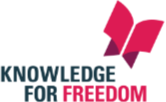“I am a man with no power, does that make me a woman?” (Barbie, 2023)
This striking observation in Barbie highlights the profound inequality between genders and how society has long equated powerlessness with being a woman. The limitation of being a woman labeled female to be incapable and helpless. They are restricted in gaining access to education, the workforce, and in general to their own freedom. This creates unfair rights and uneven opportunities for one specific gender. Men were given the power to take charge of their lives and also the lives of women. This gender inequality is highlighted in Sophocles’s play Antigone and Sheryl Sandberg’s Lean In: Women, Work, and The Will to Lead, as well as the new Barbie movie. Women live in a society where they are to be seen voiceless and controlled by male authority figures. While society often pressures men to conform to ideals of dominance and control, this pressure stems from a power structure that privileges men and disadvantages women. To empower women and dismantle these systems of male privilege, women must step up, take space, and actively assert their own agency.
A man can walk to their car at night in a parking lot without keys between their knuckles. Men wear whatever they want without worrying about what message strangers will take from it. They are not treated as objects. Men are hired without being questioned about their ability to balance work and family responsibilities. Men can have someone walk behind them without having to worry that they will have any unexpected physical touch. Men do the bare minimum and are praised as a dad or husband. These are examples of male privilege that often go unnoticed. While written hundreds of years ago, Sophocles’ Antigone not only showcases male privilege, it demonstrates the danger in letting it go unchecked.
The story of Antigone is shaped by both of her brothers who fought for the throne of Thebes. Eteocles claimed himself to be the next ruler after his father’s death and exiled Polynices. This created war between them which ended with both of them dead. While Eteocles received recognition and a proper funeral service, Polynices was perceived as a traitor and, under orders from the King, Creon, his body was left outside to rot. When Antigone receives the news about her brothers, she is aware that it was against the law to bury the corpse of a traitor, but she decided to bury the body anyways in order to live up to her own personal and religious morals. She wasn’t afraid of death as she was about to receive the punishment for burying her brother. According to Antigone, her affection for her family is strong enough to listen to the gods telling her it is time to act upon those instincts and fight for her freedom once and for all. To Antigone, this willingness by a woman to defy a man’s orders, especially those of a king, is something a leader like Creon will never understand, as illustrated when she states, “A king is fortunate in many ways, and most, that he can act and speak at will” (Sophocles 39). To Antigone, she is aware that one of the disadvantages of being a woman is that she is not blessed to think freely and easily speak and act on those thoughts. Her personal duty had gone against Creon and against his will. Since Creon is the ruler, no matter how unacceptable, he can say and do things without a punishment. Being a man is being entitled. However, women must step up and break free from this oppressive system, just as Antigone did when she risked her life to bury her brother. Caught between her familial duty and societal expectations to obey male authority, Antigone chooses to follow her convictions.
Antigone risked her own life to bury her own brother’s corpse. She was stuck between her personal duty to her family and the duty as a woman to obey the leader. Though she knew and accepted her fate, she did not live in regret. In her conversation with Creon, she said, “And if you think my acts are foolish, the foolishness may be in a fool’s eye” (Sophocles 39). Creon and the other men may feel her action was inappropriate, wrong, and foolish, but they soon come to learn that her actions were righteous. Creon ordered Antigone to be executed and immured in a cave, and, while he realized his mistakes and attempted to free her, she had already taken her own life and cursed his family. Antigone had fulfilled her will without anyone changing her mind. Antigone taking her own life at the last moment is a choice of freedom, one of few she could make as a woman in Ancient Greece. Antigone’s strong mindset had set her free from those barriers placed upon her by the men in her life.
Similarly, Sheryl Sandberg’s mindset was crucial to her success in male dominated fields. Through her book, Lean In, Sandberg explains the ways in which women must take responsibility to break out of the traditional female role. Sandberg’s book is a journey through the conflicts that she dealt with and how she overcame those injustices as a woman in the workforce. Sandberg teaches that while there are many inequalities between men and women in the modern workforce, women must take advantage of the opportunities they are given in order to create a more equitable world. In her book, Sandberg highlights criticism among feminists and advises women to take up space in their professions and the world. One of the first examples she gives of this was when, during her first pregnancy, she realized she had to ask for a closer parking space. To her shock, this was quickly approved. This simple action of recognizing a need, asking for the change, and having it accepted made her question the many other things women may have not advocated for themselves. She reflects on this, writing, “The other pregnant women might have suffered in silence, not wanting to ask for special treatment” (Sandberg 4). Like Antigone, Sandberg took a stand for what she felt was right, but she was met with openness rather than death. Women often face difficulties in voicing their concerns in professional settings due to longstanding societal expectations that discourage assertiveness, yet, we cannot let that stop us from advocating for change. Sandberg showed an example of taking space, thereby leading to positive changes for other women.
Sandberg in Lean-In explores the barriers that tend to hold down women in more of a serious, crucial environment. Just as Antigone and Sandberg challenge male-dominated narratives, the 2023 film, Barbie, reimagines a world where gender norms are both deconstructed and redefined. In Barbie’s world, every female is named Barbie and every male is Ken. In Barbie’s world, female Barbies are respected and no-one doubts them. In this idyllic world, the concept of the patriarchy doesn’t exist and the Barbies are all celebrated and empowered. Yet, when Barbie and Ken travel to the “real world,” suddenly, the gender roles are swapped. Ken quickly learns that men in the real world have the true power and is influenced by the patriarchal establishments and stereotypes he sees around him. When bringing this back to Barbie world, he is able to quickly tear down the equitable society. This shows that everyone is easy to influence and, even in Barbie world, you have to fight to regain equality. As Barbie states, “the real world is irrevocably messed up” (Barbie, 2023). Pop-culture continues to interface with women being looked down on in the way they dress, express themselves at any place they encounter. Barbie faced the contrast in reality of the real world when women are being judged for everything they do unintentionally. Everyone has a perception of women to be an underdog and always set below men, but if we wish to see this change, we must learn from the examples of Antigone and Sandberg. Perhaps then we can make our own world more like Barbie’s.
Women should embrace that they cannot be the underdog and accept what is so called “fate.” Building their own agency helps women to have strong reliance for themselves, able to have this equality toward other men in a way they do not underestimate their own ability. Embracing an independent agency can be a representation of womanhood. Sheryl Sandberg is a former CEO of Facebook and successful in her career. As a woman, Sheryl Sandberg would be very proud of Antigone for making that move. Her death in the play is risked by Antigone’s strong will that takes control for her own life. Sandberg expressed “We can each define ambition and progress for ourselves. The goal is to work toward a world where expectations are not set by the stereotypes that hold us back, but by our personal passion, talents and interests.” Although standards and expectations pull women back from achieving what they want, it always starts with them. When Barbie realized that “Women hate women, Men hate women” (Barbie, 2023) she clarifies that women tend to pull themselves down and other women down too. Having your agency is like having confidence and believing in yourself. It also sets a new motivation and inspiration for other women who haven’t had the chance to see the spark within themselves. In Barbie’s world, Barbie and Ken are no different, they are dolls with the same name. They look different from one another, but they still function the same, able to think, speak, and do what makes them happy. The world will be much more joyful and lighthearted if everyone starts to live in Barbie’s world.
As society continues to evolve, the narratives of women like Antigone, Sandberg, and even Barbie remind us that the fight for equality is far from over. How can we, as a society, ensure that women are not only heard but also empowered to shape their own destinies? Women should take actions and continue to fight in this battlefield of fate.
Works Cited
Gerwig, Greta, director. Barbie. Warner Home Video, 2023.
Greene, David and Richmond Lattimore. Sophocles 1 Oedipus the King, Oedipus at Colonus, Antigone. University of Chicago Press.
Sandberg, Sheryl. Lean In. Random House UK, 2015.

